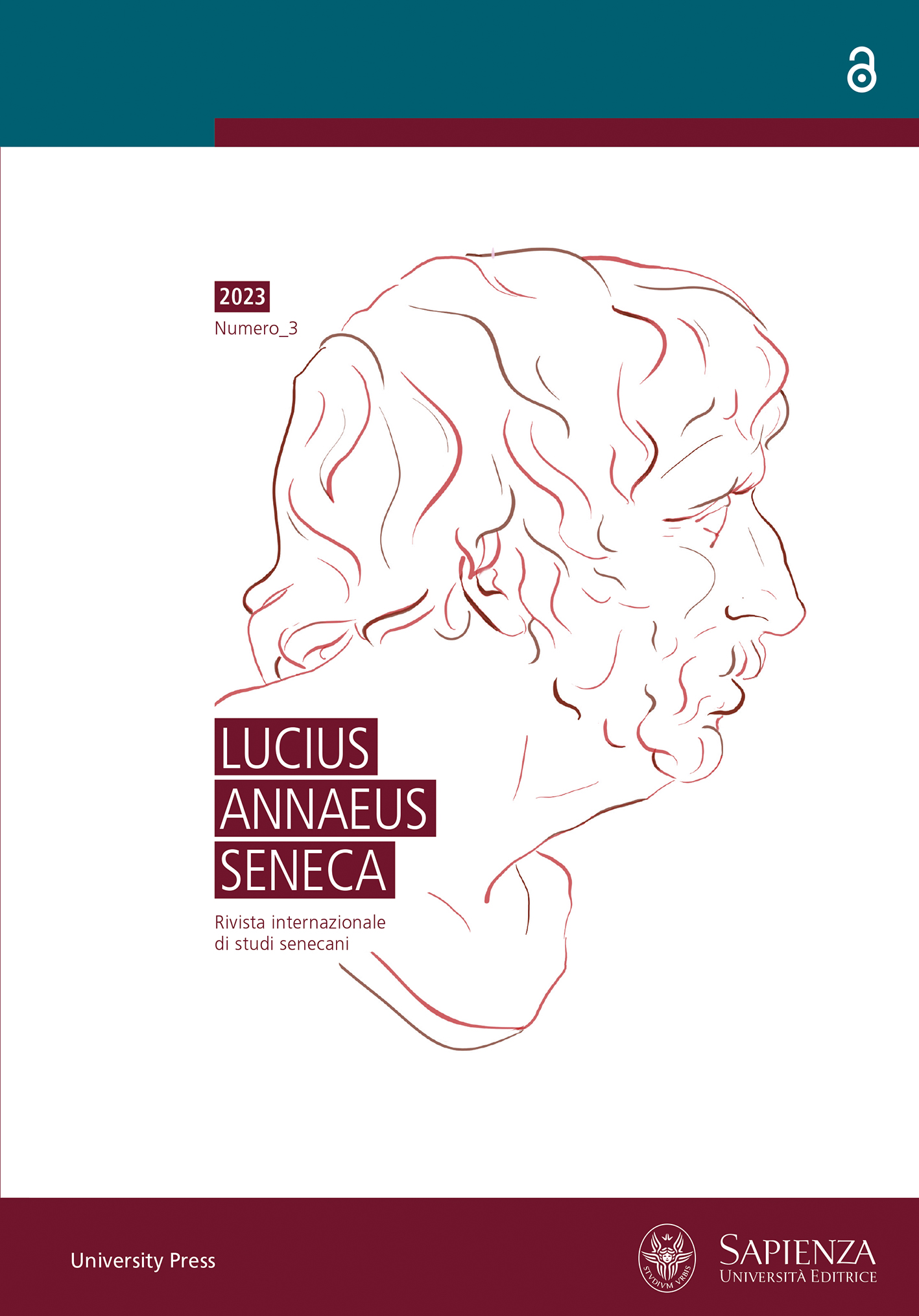Seneca’s Reception of Cleanthes’ Poetology in Epistulae Morales 107 and 108 in the Light of a New Edition of Philodemus’ On Music 4
DOI:
https://doi.org/10.13133/2785-2849/2793Parole chiave:
Cleanthes, Seneca, Philodemus, Music, Poetology, Voice, Pneuma, Impulse, Impression, Exhortation, ParaenesisAbstract
Based on the 2007 edition of Philodemus’ On Music 4 by Daniel Delattre, this paper presents a close reading of the Epicurean’s polemic against Stoic views on poetry, notably a fragment of Cleanthes (SVF 1.486), in order to show how Seneca positions himself within that debate and how he enriches it when discussing the function of aesthetically shaped philosophical discourse in Ep. 108. He adapts the Epicurean critique by adding the factor of audience intention but, like Cleanthes, conceives of aesthetically shaped language as a tool to direct attention to what is evidently good and thus motivate right action. This pragmatic function of poetry, to cause both strong impulse generating impressions and assent to them, is illustrated with the example of two prayers by Cleanthes (SVF 1.527 and 537), which Seneca incorporates in Ep. 107, the letter preceding the reception of Cleanthes’ poetological remark at Ep. 108.10 (SVF 1.487).##submission.downloads##
Pubblicato
2023-12-23
Come citare
Wildberger, J. (2023). Seneca’s Reception of Cleanthes’ Poetology in Epistulae Morales 107 and 108 in the Light of a New Edition of Philodemus’ On Music 4. Lucius Annaeus Seneca, 3, 97–130. https://doi.org/10.13133/2785-2849/2793
Fascicolo
Sezione
Articoli
Licenza
Copyright (c) 2023 Jula Wildberger

Questo lavoro è fornito con la licenza Creative Commons Attribuzione - Non commerciale - Condividi allo stesso modo 4.0 Internazionale.


